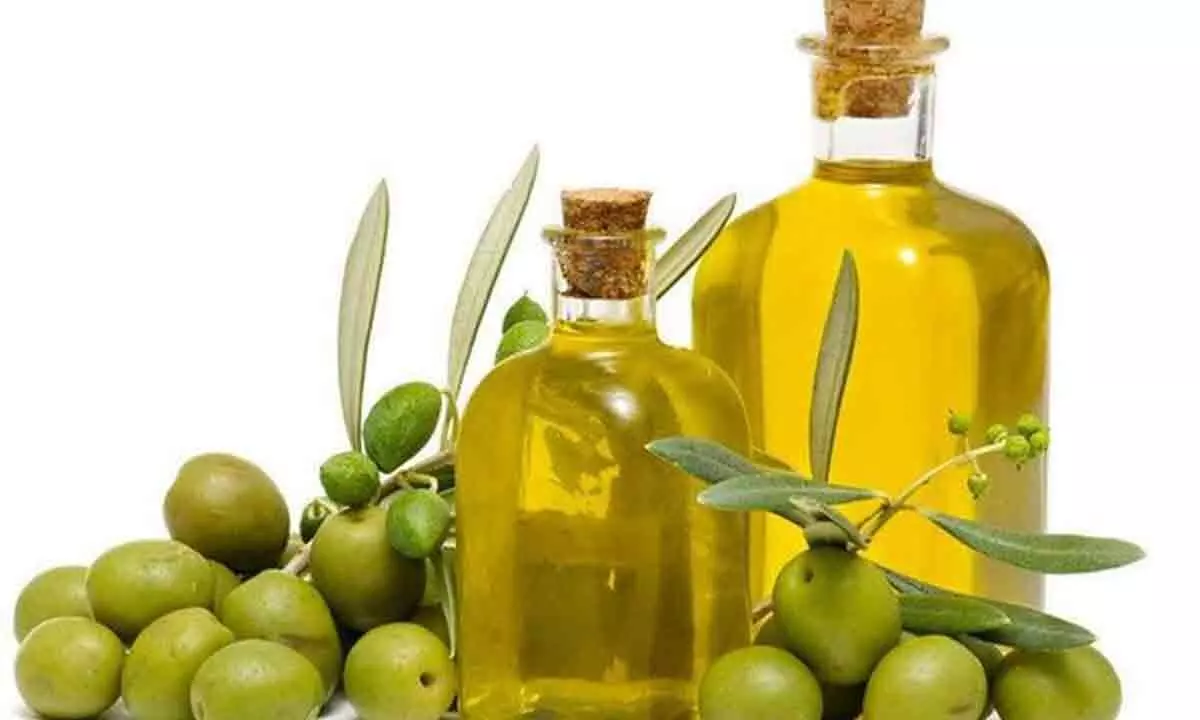Live
- Ukrainian attacks with British weapons will invite retaliation, Russia tells UK
- Indian airlines poised to capture 50% of country’s global passenger traffic: CRISL
- Entire NC unit in Ladakh's Kargil quits party to protest LS alliance
- Sharad Pawar to cast vote in Baramati after a decade
- Difference Between Business Credit Score and Personal Credit Score
- Indian Bank posts 55% jump in Q4 net profit, declares dividend of Rs 12 per share
- Govt showcases India as 365-day tourist destination at Arabian Travel Mart
- Pulwama to Poonch - Congress not learning from past mistakes, experts reckon
- ISRO moves ahead in development of 2,000 kN thrust semi-cryogenic engine
- FLiRT Covid variants: No need for panic or extra caution, say experts
Just In
Benefits of Consuming Olive Oil in Winter


As winter's chill settles in and temperatures drop, our bodies crave warmth and nourishment to stay resilient against the cold
As winter's chill settles in and temperatures drop, our bodies crave warmth and nourishment to stay resilient against the cold. One way to enhance your winter diet is by incorporating the golden elixir of the Mediterranean – olive oil. Beyond its culinary versatility, olive oil offers numerous health benefits that make it an excellent addition to your winter nutrition regimen.
Rich in Healthy Fats
Olive oil is renowned for its high monounsaturated fat content, which is considered heart-healthy. During winter, when our bodies may need an extra layer of insulation, incorporating these healthy fats into our diet can provide a source of sustained energy and keep us feeling satisfied.
Boosting Immunity
The colder months often bring an increased risk of colds and flu. Olive oil contains powerful antioxidants, such as vitamin E and polyphenols, which can help bolster the immune system. Regular consumption may contribute to a stronger defense against seasonal illnesses.
Skin Hydration
Winter weather can be harsh on the skin, leading to dryness and irritation. The monounsaturated fats in olive oil help moisturise the skin from the inside out. Additionally, the antioxidants in olive oil contribute to a youthful complexion by fighting free radicals that can accelerate the aging process.
Comfort in Every Meal
Winter is synonymous with hearty, comforting meals. Olive oil adds a rich and flavourful dimension to a variety of dishes, from soups and stews to roasted vegetables and grilled meats. Drizzling extra virgin olive oil over your favourite winter recipes not only enhances taste but also provides a satisfying feeling of indulgence.
Regulating Cholesterol Levels
Maintaining healthy cholesterol levels is crucial for heart health. Olive oil has been shown to positively impact cholesterol by increasing the levels of high-density lipoprotein (HDL or good cholesterol) while lowering low-density lipoprotein (LDL or bad cholesterol). This can contribute to a healthier cardiovascular system, particularly during the winter months when the heart works harder to maintain body temperature.
Stabilising Blood Sugar
Winter often tempts us with sugary treats and carbohydrate-rich comfort foods. The monounsaturated fats in olive oil may help regulate blood sugar levels, providing a more stable source of energy and reducing the likelihood of energy crashes associated with high-glycemic foods.
Versatility in Cooking
Olive oil's versatility makes it a kitchen staple for winter cooking. Whether used for sautéing, roasting, or as a finishing touch to salads, the robust flavour of extra virgin olive oil can elevate any dish. Its smoke point is high, making it suitable for various cooking methods without compromising its nutritional benefits.
Embracing the winter season involves more than just bundling up in warm layers; it requires a mindful approach to nutrition that supports our well-being during the colder months. Incorporating olive oil into your winter diet not only adds a touch of Mediterranean flair to your meals but also brings a host of health benefits. So, as the temperatures drop, let the golden goodness of olive oil warm both your body and your spirit.

© 2024 Hyderabad Media House Limited/The Hans India. All rights reserved. Powered by hocalwire.com






